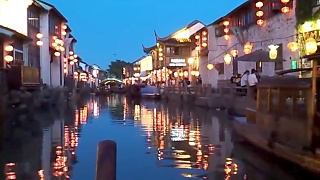
|
With Pascal Coppens ...
YT comments :
As an ABC, I have traveled to China over a dozen times over the last 40 years. The changes over this period have been breathtaking, but the biggest change has been the deliverance of nearly 800,000,000 citizens out of poverty. Gob-smacked Americans are agape but have gone out of their way to minimize and demonize any Chinese accomplishments. It is getting tiresome hearing racist, biased Western politicians cry about "potential national security" risks. I just returned from another phenomenal trip to China (Shenzhen and Chengdu). Based on my interactions with friends and relatives in China, they are not preoccupied with Anti-American sentiment. America's hysteria about all things Chinese is rooted in unadulterated racism and the inability to accept that China could EVER be a formidable rival."
"The following article is written by Ismail Bashmori, he is an Egyptian China watcher.
The truth is that China is the greatest country on the face of the earth. It makes all other countries look insignificant and contemptible. It is the most brilliant, most industrious, most ambitious, most educated, meritocratic and technocratic, most modern, sophisticated, and civilised, and best-governed by far. .
It is the first non-white, non-Western country to reach this status since the 1600s. The determination of this country is indescribable. Supernatural. There is no force that can stop it from accomplishing anything it wants to do.
It doesn’t matter who we are. Egyptians, Syrians, Pakistanis, Indians, Africans, even Americans. Next to the Chinese, we are pathetic. We can’t do what they do. We would have a mountain, an Everest of changes to make, and we would whine and bicker and fail at every one of them. China’s story since the 1980s has been one of an almost divine metamorphosis.
Next to China the entire Western world from Alaska to New Zealand has stagnated. Next to China the entire developing world from Brazil to Madagascar has progressed only at a crawl.
China is the mother of all gargantuan bullet trains. Every day it manages to create something new and astonishing. And unlike the United States, unlike the British Empire, unlike the French, Dutch, Germans, Spanish, Portuguese or any other Western nation that had its turn at being a superpower in the past four centuries, China doesn’t need to run anybody over or take something from somebody else, to rise majestically.
China is also standing up to the West all by herself. The West can’t believe their four-hundred-year-old global supremacy is being challenged. They hoped that the more China developed, the more it would submit to their influence, interests, and leadership. That didn’t happen. So now they will do anything possible, short of a nuclear war, to make China end.
Their goal is to destroy this country. That’s why, although the United States has killed several million people and turned several regions of the earth into hellscapes.
China is the worst fear of our planet’s Western masters. They want you to despise and dread a country that’s done nothing to you, that hasn’t invaded anyone, bombed or sanctioned anyone, that hasn’t overthrown any foreign government, or used its military on anything since 1979.
China is the only major country in the nonwhite developing world, to stand up to the West. To look it in the eye when challenged or threatened.
The Global South are simply Western puppets who submitted long ago. Even the most powerful ones. Saudi Arabia, Brazil, India.
The 1500s—1000s BC were Egypt’s time. Antiquity belonged to the Greeks and Romans. The 1700s belonged to France, and the 1800s to Britain. From 1945 to the present, the world has been under American overlordship. And they call it the Pax Americana but there isn’t much Pax in it.
There’s plenty of Pax if you’re in Europe or Australia. But the Middle East? Afghanistan, Iraq, Libya, Syria, Iran and Yemen in the past 20 years. Latin America? They’ve destroyed that part of the world beyond any hope of recovery. Africa? It’s only been spared because of disinterest. The US sees Africa as nothing. The whole West does.
But in the twenty-first century, we are witnessing the rise of China. We are decades away from China becoming the greatest power on earth. This will be China’s time, and there’s nothing anyone can do about it. Attack China all you want, curse her and monger rumours and hysteria — but the truth is that none of your accusations are backed up by evidence. The Western press is under the thumb of Western governments that want to stay on top of the world for eternity. And the truth is that China is not affected by the noise and maneuvers of her enemies.
For her first thirty years, from 1949 to 1979, China was basically blockaded and isolated economically and politically by the West. It didn’t even have a seat in the UN General Assembly. And it was dirt-poor in those days, barely a speck of the global economy, a tiny fraction of Japan’s or Germany’s GDP — not even able to prevent famine. And it still didn’t submit to pressure or take any orders. Why on earth would it do that now?
China will be the next global power. There’s nothing that can be done about that. The first stage is that its economy only needs to grow at 4.7 percent per year to become the world’s largest by 2035. That means the usual, historical bare-minimum of 6 percent is already overkill. The US can build as many bases as it wants, slap as many sanctions as it wants, recognise whatever bogus genocides it wants. That’s what it’s been doing all along. Has any of it made a difference? China can adapt to any situation. It took China a mere ten years to go from being barred by the US Congress from participating in the “International” Space Station, to building its own Space Station from zero.
|

 A visual guide to HeFei 合肥 …
A visual guide to HeFei 合肥 …



